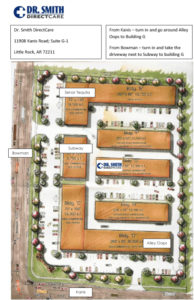Most everything that is relevant to your health happens between visits with your doctor. Therefore, optimum health requires taking responsibility for your own health, and making good decisions that affect it. One good way to accomplish this is to have an effective relationship with your primary care physician. When this exists, you can ask questions and have collaborative discussions about issues as often as you need.
At DrSmithDirectCare, I encourage patients to take responsibility for their own health, and to use the physician as a guide or facilitator. To be able to do this, you must have free and easy access to ask questions, and be assured that you will receive timely answers to your questions.
It is sometimes said, even by some physicians, that patients should not “google” health issues, and that it may just confuse them. But I don’t believe it is possible to “know too much” about your chronic condition or about preventive health issues. So I encourage patients to learn as much as possible about their conditions, to be aware of their medications and dosages, and to ask questions about them as frequently as necessary.
The term sometimes used for this practice is “participatory medicine”. There is even a society (Society of Participatory Medicine) and a journal dedicated to pursuing these principles and practices between health professionals and the public.
Here is a “participatory medicine” check list for you:
- Read up on your conditions, using credible, evidence-based sources.
- Familiarize yourself with all of your medications and commit the names and doses to memory.
- Educate yourself about recommended preventive practices for your age and gender.
- Visit with your primary care physician at appropriate intervals, at least for annual visits.
- Become accustomed to asking your physician for guidance or questions about your health issues or confusing issues that you have read about.
—CWS
